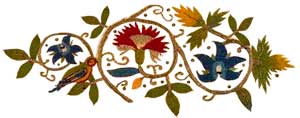 Whatever you may have heard, not every boy gains my attentions. For all his honey-gold hair, Jack charms me not. But you.” Marlowe looked at me sorrowfully. “A girl!”
Whatever you may have heard, not every boy gains my attentions. For all his honey-gold hair, Jack charms me not. But you.” Marlowe looked at me sorrowfully. “A girl!”
“Enough to damn me?”
“Not to damn you. But I don’t make love to girls and cannot imagine it now, for all your beauty.” He took my hand in his. “Don’t be sad.”
I pulled away.
“Why should I be sad? Because I can’t be your ingle?” I spit out the ugly word.
Kit Marlowe speaking to Sander, The Secret Player, Chapter XIX
In his testimony against Christopher Marlowe at his posthumous atheism trial, Richard Baines quoted his now-famous saying that ‘they that love not Tobacco and Boys were Fools’ (Jardine quoting P.H. Kocher, 21).
Two of Marlowe’s plays deal with homoeroticism: Dido, Queen of Carthage, in the scene between Jove and Ganymede, and Edward II where Edward’s love for Gaveston breaks his marriage to Queen Isabella, who was of course played, in Marlowe’s day, by a boy. King Edward pays a terrible price in the end, but the love language in the play is beautiful.
In my novel, Kit Marlowe kisses Sander in the gardens of a country house where the two of them, along with other actors and poets, have fled the plague that ravages London. When he next manages to get Sander alone, Marlowe touches the player boy intimately, only to discover her true gender: the scene quoted above.
Perhaps Marlowe wouldn’t mind playing with Sander, girl though she is, but when she alludes to having been put upon by a smith’s apprentice, he does not persist, and they become friends. She asks him not only to keep her secret but to avoid flirting with her. With a laugh Marlowe refuses: to change his normal behavior would arouse more suspicion.
Close male friendships, flirting and playful homoeroticism were a part of Elizabethan culture. No one will ever be certain of the relationship between the Poet and the Young Man in Shakespeare’s sonnets, but the language is that of love. Subject for another day: here we’re talking about boy actors. The youth in Shakespeare’s sonnets is generally believed to be Henry Wriothesley, (pronounced Risley), the Earl of Southampton, an avid patron of the theatre but no stage actor.
As I have said, the term ‘ingle’ was used derogatorily about boy actors. Lisa Jardine argues that ‘the dependent role of the boy player doubles for the dependency which is the woman’s lot, creating a sensuality which is independent of the sex of the desired figure and which is particularly erotic where the sex is confused (when the boy player represents woman, disguised as a dependent boy)” (24).
Enter Alexander Cooke, and the erotic confusion gains an additional level: girl playing boy actor playing woman who in some plays, disguises herself as a boy.
